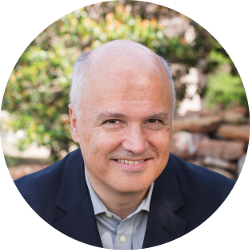Since at least the beginning of recorded history, mankind has looked at the stars with wonder. Not all civilizations have had the same understanding of what the lights in the night sky represent, but they’ve all pondered them with awe. It’s as if somewhere deep in our souls, some part of us knows that we were meant to be out there.
If we could get there—if a door were suddenly opened and we could travel the stars—what would we find?
Maybe you’ve seen some of these recent headlines:
“Aliens likely to be ‘electronic entities’ which have overthrown their creators.“ This British cosmologist believes that any aliens who visit us will be more or less just like us, but more advanced. Which, to him, means they’ll already have been overthrown by the machines they created.
“Astronaut who walked on the moon: ‘why I know aliens haven’t visited Earth.'” This astronaut believes that if aliens exist, they’re all really good people. If they’d visited us, they would’ve introduced themselves and offered to help us solve all our problems.
“Stephen Hawking wants to find aliens before they find us.” Dr. Hawking compares the idea of us contacting aliens to Native Americans welcoming Columbus. “That didn’t turn out so well,” he says.
A NASA study from 2012 estimates that within our galaxy there are 100 billion planets, and that 10 billion of those are similar in size to Earth. The study further estimates that there may be 1,500 planets (150 Earth-sized) within fifty light-years of Earth.
Multiplied by the estimated 100 to 200 billion galaxies in the universe, there may be 2×1021 (that’s a 2 followed by 21 zeros, or two thousand billion billion) Earth-sized planets in the universe. Some people argue that with that many planets, it’s just simple statistics that there must be other planets with life on them.
But those people haven’t finished doing the math. Yes, there may be a lot of planets, providing a lot of opportunity for life. But what does it take for life to begin spontaneously? This excellent documentary, using a very generous set of assumptions, estimates the probability of one simple protein self-organizing is one in 10164 (that’s a 1 with 164 zeros after it; 22:20 mark in the video). Given 1058 seconds in the 4.6 billion year history of the planet Earth, the odds against this single protein ever having invented itself are one in 10106. Of course, we do have 2×1021 laboratories cross which to duplicate the experiment, but that sill means the chances of life creating itself once across the entire universe is (considerably less than) one chance in 5×1084 (that’s a 5 followed by 84 zeros). That’s for one single, simple protein. The simplest cells require more than 300 unique proteins. And they all have to come together at the same place, at the same time, inside some kind of cell wall, and in the presence of a bunch of other unique complex molecules.
It didn’t happen. Not twice. Not even once.
And yet, here we are. So if life didn’t create itself spontaneously, how did we get here?
A lot of different ideas have been proposed. It’s important to recognize that unless we figure out how to travel backward in time, none of those ideas can ever be proven. No one was there to witness the first life. Even if we could create life out of nothing in a laboratory (a big if), we couldn’t prove that life on Earth originated by the same mechanism. And in fact, we would only be proving that intelligent design is a viable explanation. (We didn’t observe it creating itself. In this hypothetical scenario, we went to great lengths to create the circumstances by which it came to be. We created it. And we’re intelligent, right?).
So believing any theory about the origin of life on Earth requires faith—believing something you can’t see and can’t prove.
Which requires less faith: That we hit the lottery and are that one chance in 5×1084? Or that God exists and created us? (Before you choose against God, realize that this argument based on the improbability of self-organizing life is but one of a long list of evidences of design in the universe.)
So if God created life on Earth, and that same God created the entire universe, could there be other life out there? If there were, what might it look like?
I’ll share some of my thoughts in a future post (as well as my upcoming science fiction novel, Two). But for now, what do you think?
